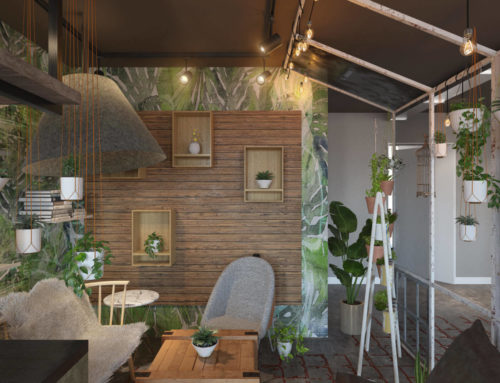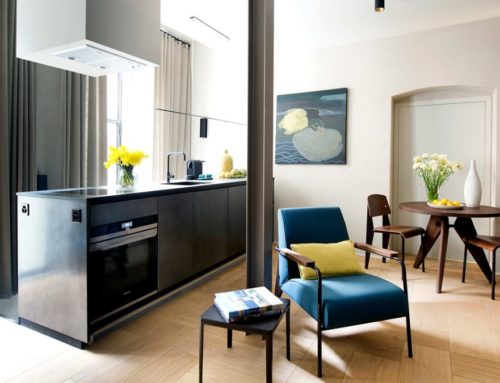by Max Thorne, MD Hospitality at JLL, Chief Exec MRP, Chairman, Senior Advisor, Non-Exec
The UK serviced apartment market is emerging as a hot prospect for developers and investors, as undersupply and a shift in demand away from traditional hotels create new opportunities.
According to JLL, serviced apartment markets in London and major UK regional centres are under-supplied.
Citing figures from AM:PM, JLL shows the serviced apartment market accounts for only 7.5 percent of total room inventory in the capital, significantly lower than other major cities.
At the same time, demand for serviced apartments is strong, with occupancy usually above 75 percent.
“With serviced apartments in London making up less than 10 percent of total room inventory, there are huge opportunities for growth in this sector,” says Max Thorne, JLL’s Managing Director, Hospitality.
“It is definitely an exciting time for the serviced apartment industry. The industry is evolving, with new products coming to the market to meet changing customers’ needs.”
“We are seeing fundamental changes in what people want and expect from where they stay. The industry is examining what is driving people to opt for home-sharing and apartments and apart-hotels, and replicating that in its offering. That is why we are seeing growth in the serviced apartment inventory.”
“The chance to ‘live like a local’ or find an affordable room in a city centre location has tempted many a visitor away from hotels and into the arms of peer-to-peer apartment rental sites.”
“At the same time, the industry is very fragmented without a known brand. Brand consolidation is expected as the sector grows stronger.”
Serviced apartment operators began to announce aggressive expansion plans following a jump in demand in 2015. In that year, RevPAR grew across the UK by 4.7 percent, as did average rate and occupancy.
“With 94 percent of operators reporting that demand in their regions is increasing, compared to 77 percent in 2011, demand will start to outstrip supply,” Thorne says.
According to JLL, the UK’s serviced apartment sector will grow significantly in the short to medium term, with more than 1500 rooms due to open between now and 2019 in London alone.
Operators are not restricting their expansion plans to London, with brands like Staycity Go Native and SACO opening new properties in Manchester, Heathrow, Birmingham, Bristol, Newcastle, Aberdeen and Edinburgh.
“With even lower inventory than London, regional UK cities represent a significantly under-supplied opportunity,” Thorne says.
“Domestic tourism spend has risen from around £16 billion in 2006 to nearly £20 billion in 2016. This, coupled with the fact that serviced apartments currently make up only 1.8 percent of rooms across the UK regional market, highlights the opportunities for new entrants to the market beyond London.”
Drawn to an under-supplied market subject to growing demand, investors have begun to turn their gaze towards the UK’s serviced apartment market.
JLL research shows transaction volumes in the UK have seen steady growth over the last couple of years, with total serviced apartment deals reaching £325 million in 2015, a 114 percent increase over the prior year.
“Serviced apartments are seen as a good investment opportunity because of their high profit margin, stable cash flow, high space efficiency, conversion flexibility and lower development cost,” Thorne says.
“The serviced apartment sector is also on the radar of investors due to improved product awareness and the shift in travellers’ behaviour.”
“Investment funds and private equity firms are the most active buyers in the market, while developers are catching up.”
Thorne says that, with hundreds of small- to medium-sized operators, the sector is ripe for consolidation.
“It is clear that the hospitality industry is attractive to overseas investors, as JLL recently advised on the acquisition of a three-hotel regional UK portfolio to an Asia-based joint venture. The fall in the Sterling will also surely boost the UK’s attractiveness as a tourist destination to overseas visitors, which can only be a good thing for the hospitality industry in general.”
While the serviced apartment market is likely to be challenged by the rise in popularity of apartment rental websites, Thorne argues this scenario represents an opportunity for the sector.
“The chance to ‘live like a local’ or find an affordable room in a city centre location has tempted many a visitor away from hotels and into the arms of peer-to-peer apartment rental sites,” Thorne says. “There has been an extraordinary global growth in consumers choosing to rent apartments as their travel accommodation.”
“The industry has to look at what is driving people to opt for home-sharing and apartments and apart-hotels and replicate that in their offering.”
“However, it can be argued this shared accommodation sector is fuelling consumer appetite to experience a branded, consistent, regulated alternative to the Airbnb model.”
“Brands and operators need to respond to next-generation travellers’ desire for the unique and individual over the familiar and expected.”
“This is not something to shy away from. There is a clear opportunity for operators to step up and create product to fulfill the continuing demand for short-term apartment rentals.”
Max Thorne
Managing Director, Hospitality, JLL
Source Link:
https://www.linkedin.com/pulse/challenges-opportunities-growth-uk-serviced-max-thorne








Leave A Comment